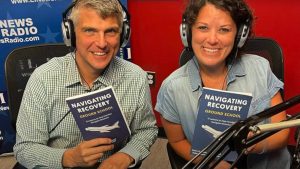
ROI on Addiction Recovery. What is it worth to you?
Through my work, I have come to see that many people don’t put a proper value on recovery from drug or alcohol use. I encourage people to think about recovery as an investment in themselves.
Often people value sobriety through the money they would save by not using. Someone who drinks too much might spend $25 per day on alcohol, while a heroin addict might spend $200. That’s potentially thousands of dollars per year.
When someone first considers getting sober, they often want to do it in the quickest, cheapest, and easiest way possible. But to value recovery we really have to value how much using drugs or alcohol costs us emotionally, physically, and economically. We also have to look at the opportunity costs of drug and alcohol use.
Being sober is about more than just not-drinking
People call me about loved ones and say, “All I want is for him/her to stop drinking.” I always ask, “Is that really all you want?” The answer is always no. That’s not all the person wants; usually they go on to say something like, “Well, I also want them to get new friends, find a job, and move out of the house.” So, no, the person doesn’t just want their loved one just to quit drinking. They want them to live a whole new life.
When someone that is suffering reaches out for help, they often remain unwilling to make a financial investment in recovery. I look at what their use is actually costing them by asking the following questions.
- Are there problems in your relationship?
- Have you been divorced, or has divorce been threatened?
- Do you have full custody of your children? Is that in jeopardy?
- Does your employer know about your drinking or drug use?
- Are you maintaining important friendships?
- Are you maintaining important family relationships?
- Are you working? Are you working to your full potential?
- Do you have any health concerns?
- How many hours do you spend under the influence every day?
- Do you wake up sick?
- Do you spend as much time as you would like with your spouse, children, and pets?
- Do you sleep in until ten, eleven, or twelve?
Sobriety is the best investment you can make
By the time someone reaches out for help, they’re usually in the advanced throes of addiction. Life in deep addiction almost always looks pretty isolated. Friends and family have pulled away, employers are aware (or the job is in jeopardy), bad financial decisions may have been made.
Addiction takes times away. It’s not uncommon for someone to start drinking in the middle of the day or in early evening, perhaps even every day. They may lose more time every day on a hangover. It’s easy for someone to spend 4-6 hours a day on their addiction and then be under the weather for 4 hours the next morning. Sobriety can return that time for you. What would you do with an extra four hours every day? Would you take up a sport? A side job? Or just be a better parent?
The best gift that sobriety can give you is more time
Someone in advanced addiction may not only be spending a lot of time and money on drugs or alcohol. They may be close to, or past, losing everything. If they’re working, they’re often underemployed.
Sobriety will change everything. Your physical health may return, your relationships with friends and family may be repaired, and you may return to work in full force. All of these changes can be accomplished in a matter of months.
Recovery is priceless
When putting a dollar value on recovery, consider how much money you would pay to change everything in your life. How would you value your family? Can you assess the value of your education and career? How much would you pay on your child’s behalf to totally change their life?
A short-term investment in recovery like going to treatment, attending therapy, and hiring a coach may feel like a lot, but the trade-off can last a lifetime. The financial benefits may include a better job, and the other benefits may include a whole lot of things that don’t have a dollar value like healthier living, a better connection with your family, fewer problems in life, and even an extended lifespan.
About Adam Banks
Adam Banks is a certified interventionist and the owner of Adam Banks Recovery. After receiving an MBA from the University of Chicago, Adam built a company acquired by United Health Care. His discipline and attention to detail comes from his former career as an airline pilot, holding an ATP, the FAA’s highest license.
Today, Adam is dedicated to helping others achieve long-term sobriety. His work has guided executives, pilots, and physicians on paths to recovery. Adam brings families together through a loving and inclusive approach.
Adam has authored four books on addiction. His recent work, Navigating Recovery Ground School: 12 Lessons to Help Families Navigate Recovery, educates families on the entire intervention process. He also offers a free video course for families considering an intervention for a loved one.
Adam is available for alcohol and drug intervention services in New York, Long Island, the Hamptons as well as nationally and internationally.




